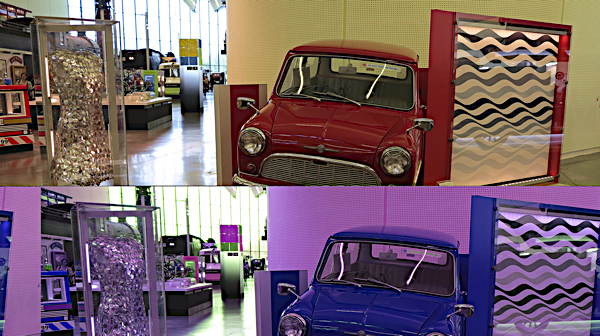Contemporary Issues in Museums: Museum Work / Critical Practice

Image: The '60s: Audrey Hepburn, Austin Mini, Bridget Riley. Riverside Museum of Transportation. Glasgow, Scotland, 2015.
The museum is a complex institution that exploits a range of social, political, economic and cultural strategies to achieve its mission—strategies that exploit the expertise of individuals associated with a number of intellectual and technical disciplines. This course examines the multiple knowledges that converge, coalesce and contribute to the collaborative dynamics of the contemporary museum. Simply put, the course considers the theory and practice of museum work; the work undertaken by curators, exhibition designers, educators, conservators, collection managers, financial officers and administrators. We compare the work of these professionals in various settings, specifically in art, natural history, history and science museums. Ultimately "Museum Work" seeks an understanding of and appreciation for critical reflective museum practice. The course involves weekly readings, lectures, class discussions, visits to campus museums and conversations with museum professionals.
Prerequisites: Museums and Society (MUSEUMS 301) and declaration of Museum Studies Minor.
Course Requirements: Class participation (15%), a "reflective journal" (25%) of experiences associated with the course, an oral presentation (10%) and short paper (15%) reporting on focused study of a specific dimension of museum work, the submission of "critical questions" (15%) for each module, and a final exam (20%)
Class Format: Two 1.5-hour seminar meetings per week.
Textbooks/other materials: No textbook is required. Weekly readings will be drawn from a set of articles, essays and book excerpts available on a dedicated Canvas site.